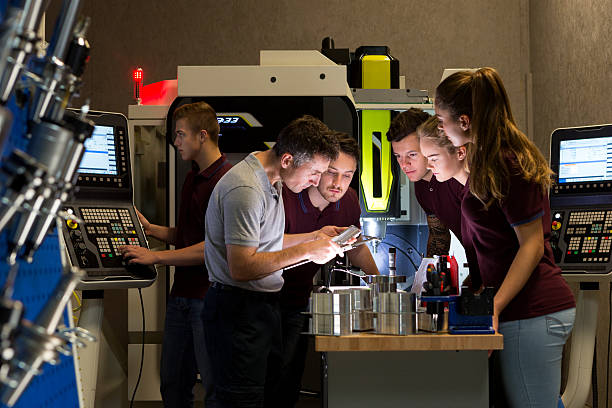STEM education plays a crucial role in tackling some of the world’s biggest problems, like climate change, health crises, and food shortages. By blending science, technology, engineering, and math, students gain the skills they need to think critically and create innovative solutions.
With this powerful knowledge, they can address complex issues and contribute to a brighter future. Here are some ways STEM skills and education are making a difference:
Climate Change and Sustainability
Climate change is one of the most pressing issues we face today. A STEM-focused curriculum helps students understand the science behind climate change and its impacts. By learning about renewable energy, waste management, and conservation, students can develop practical solutions to reduce their carbon footprint.
This knowledge empowers them to advocate for sustainability in their communities. Engaging with real-world problems encourages innovation and helps create a generation that is committed to protecting our planet.
Healthcare and Medicine
STEM education greatly influences healthcare and medicine. Students learn about biology, chemistry, and technology, which helps them understand how the human body works. They explore how stem tech can improve treatments and create new medical devices. This knowledge prepares them to solve health problems and contribute to advancements in patient care.
By studying real-life cases, students see the impact of their learning and understand the importance of innovation in medicine. Through STEM, young minds are equipped to face health challenges and improve lives.
Food Security
Food security is about making sure everyone has enough food. STEM education helps students understand how to grow food better. They learn about farming, soil, and water. This helps them find ways to grow crops in different places, even where the soil is poor.
Students also learn about nutrition. They see why healthy food is important for everyone. By using science and technology, they can help communities have good food choices. This way, they work to make sure no one goes hungry. Through learning, they can help solve food problems in the future.
Clean Water and Sanitation
Clean water is very important for health. STEM education helps students learn how to get clean water for everyone. They study water sources and see how water can get polluted. Students also learn ways to clean water. They explore tools and methods that make dirty water safe to drink.
They understand the need for good sanitation. This means having clean places for people to go to the bathroom and wash their hands. By learning about these topics, students can find ways to improve water access and hygiene in their communities. They can be part of solutions that keep people healthy and safe.
Technology and Innovation
Technology and innovation are essential parts of STEM education. Students learn to use tools and software that can solve problems. They explore coding, robotics, and data analysis. This hands-on experience helps them develop new ideas and products.
STEM grants can support projects that encourage creativity and practical applications. With these grants, schools can acquire resources and technologies that enhance learning. By engaging with technology, students prepare for future jobs and discover new ways to improve lives.
Learn All About the Role of Stem Skills and Education
STEM education is very important. It helps students learn about big problems like climate change, health, food, water, and technology. With STEM skills, students can find new ways to help.
They can make changes in their communities. Learning STEM makes a better future for everyone. It gives students the tools they need to create good solutions. By studying these subjects, they can help the world become a better place.
Visit our blog for more!




